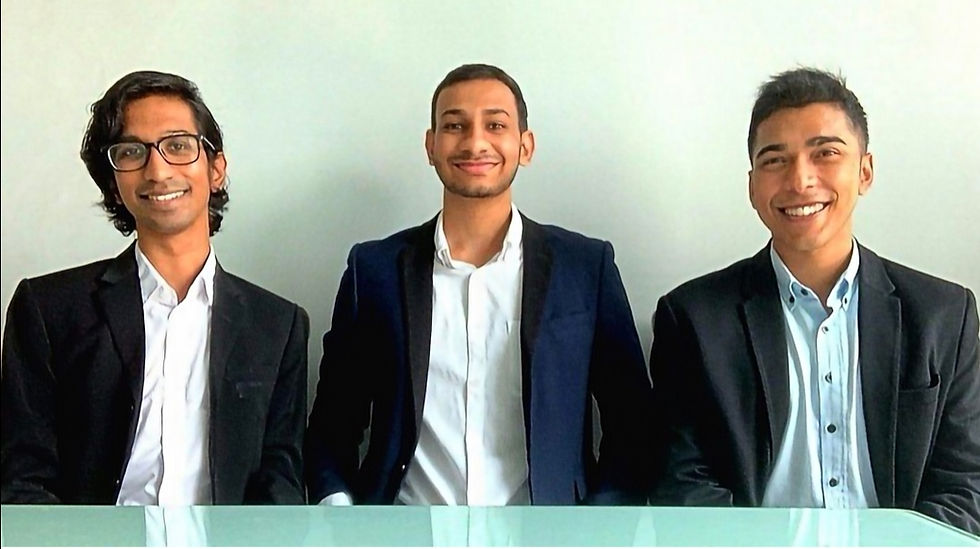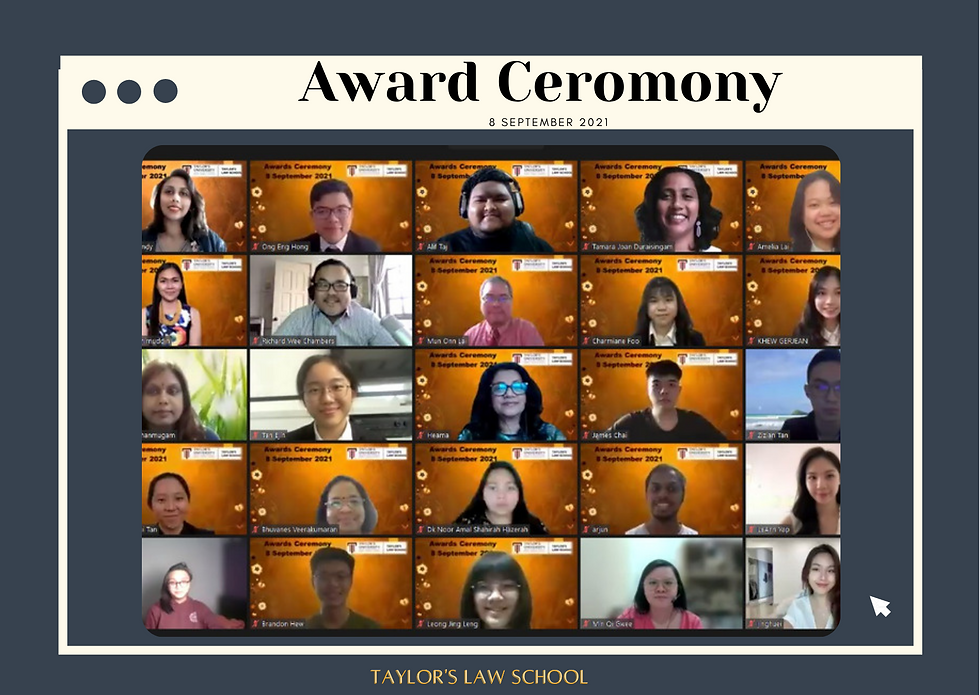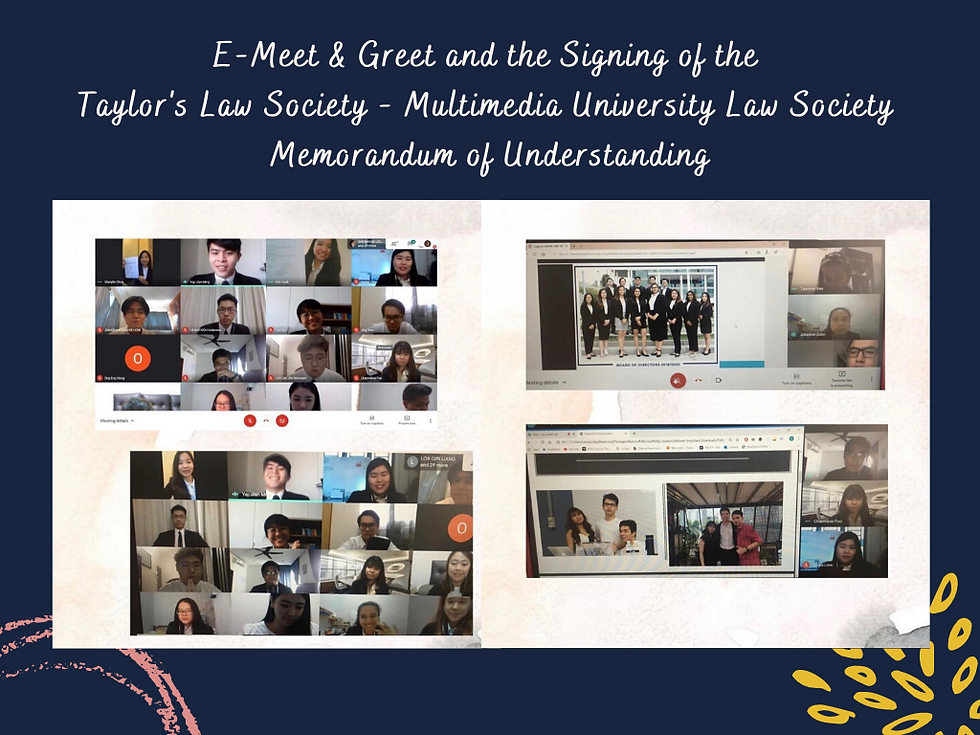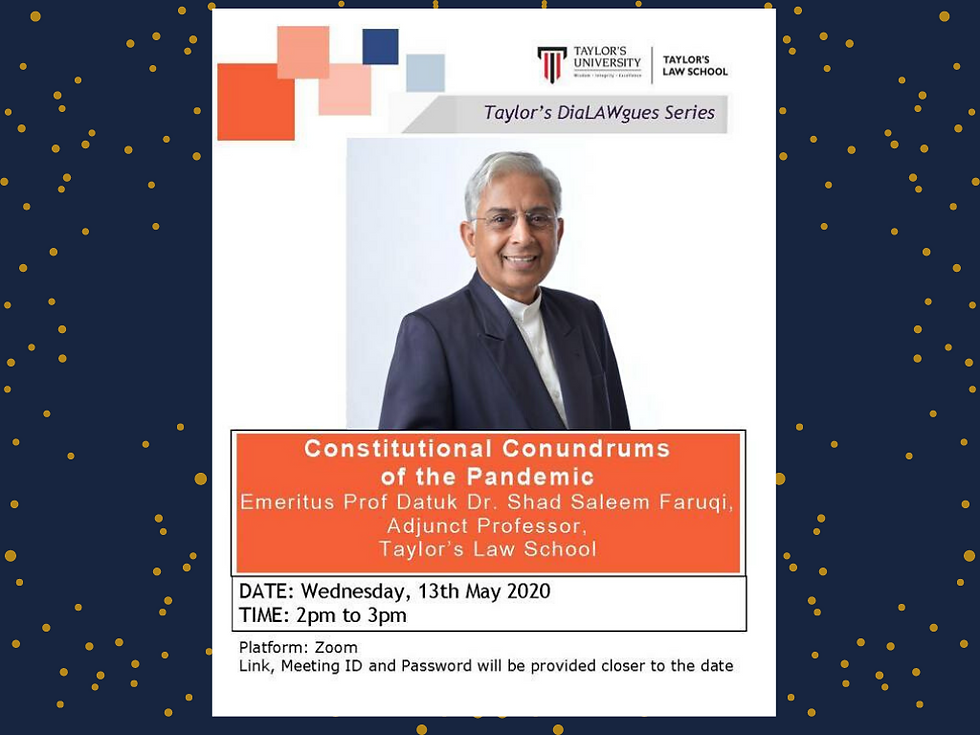LAWASIA Goes Online!
- Lexicon Editorial Board

- Sep 4, 2020
- 3 min read
From the wearing of masks and social distancing to the massive efforts in search of a vaccine, the new normal has indeed affected various industries across the globe, and no doubt, the annual LAWASIA International Moot Competition. However, refusing to bend to the pandemic, LAWASIA and the Malaysian Bar Council challenged the unchallenged and brought the 15th competition online. The 60-page moot problem this year involved areas encompassing International Dispute Resolution, Commercial Law and Contract Law. Taking up the challenge, Taylor’s University was represented by two teams, Amitaesh Thevananthan, Lucas Isaac Seneviratne, Prishanth Lingaraj in Team M2026, and Yeow Jie Hang, Joel Tan Hin Keat, Alex Goh Wen Wei in Team M2031.


Before deciding to join the LAWASIA moot competition, Alex Goh revealed that he initially intended to participate in the Novice Arbitration Mooting Competition (NAMCO) 2020, another competition popular among amateurs mooters. Unfortunately, NAMCO was postponed due to the uncertainties brought by the pandemic. As the saying goes ‘when one door closes, another window opens’, Alex decided to take the leap of faith and entered LAWASIA.
While it was an exciting journey, they had many concerns as this was their first online moot competition. “There may be some technical problems such as a bad WiFi connection, internet lagging or the judges’ questions being cut-off midway which may result in me missing out on certain parts of the questions posed,’ he shared.
Alex was also worried that he wouldn’t be able to “showcase his advocacy skills fully” and it may be “difficult to observe the judges’ facial expressions” during his virtual submission.
Despite that, having completed his mooting module last semester online, he stood valiant and was as prepared as he can be. Thankfully, his team was able to complete their rounds smoothly and bagged the 5th place in the competition.
Additionally, Lucas Isaac also had the opportunity to partake in this unforgettable experience with his teammates, fighting their way to the semi-finals.
When asked about his first virtual mooting competition, he noted that the “lack of physical interaction between judges and mooters” was one that significantly stood out from his past experiences.
“It was great to see the wonders of technology taking centre stage and connecting everyone, a great insight as to how the future of litigation would be,” he shared.
While Lucas admits that submitting behind a screen lifts the worry and anxiety one usually has before they moot, he still prefers a face-to-face moot experience as “nothing beats the excitement and adrenaline that it somehow brings.”
Talking about improvements he hopes to see in future competitions, he commented that there is a need for standardised scoring schemes to be applied accordingly, leaving less room for disparities between judges.
“Of course, judges are subjective in opinions but being a competition which has its goal in training future lawyers to be better advocates, there needs to be more consistency in how certain things are done and scored.”
Nonetheless, Lucas found the experience rewarding as a whole as he enjoyed discussing different views with his teammates and looking for ways to work around issues. Currently a recent graduate, he has found mooting a fulfilling journey, one which moulded him in many ways and has been a huge asset for him in his pathway to becoming a lawyer.
Mooting can be a great avenue for law students to improve their advocacy, research skills and their understanding of the law. As Alex concluded, “do not be afraid to try out new things, one has to be open-minded and embrace anything thrown at them and use it to his/her advantage. If you have the opportunity to join any moot competition, seize it because not only would it help you sharpen your advocacy skills, but will allow you to meet many different people in the legal industry who are ever willing to impart their knowledge.”



Comments